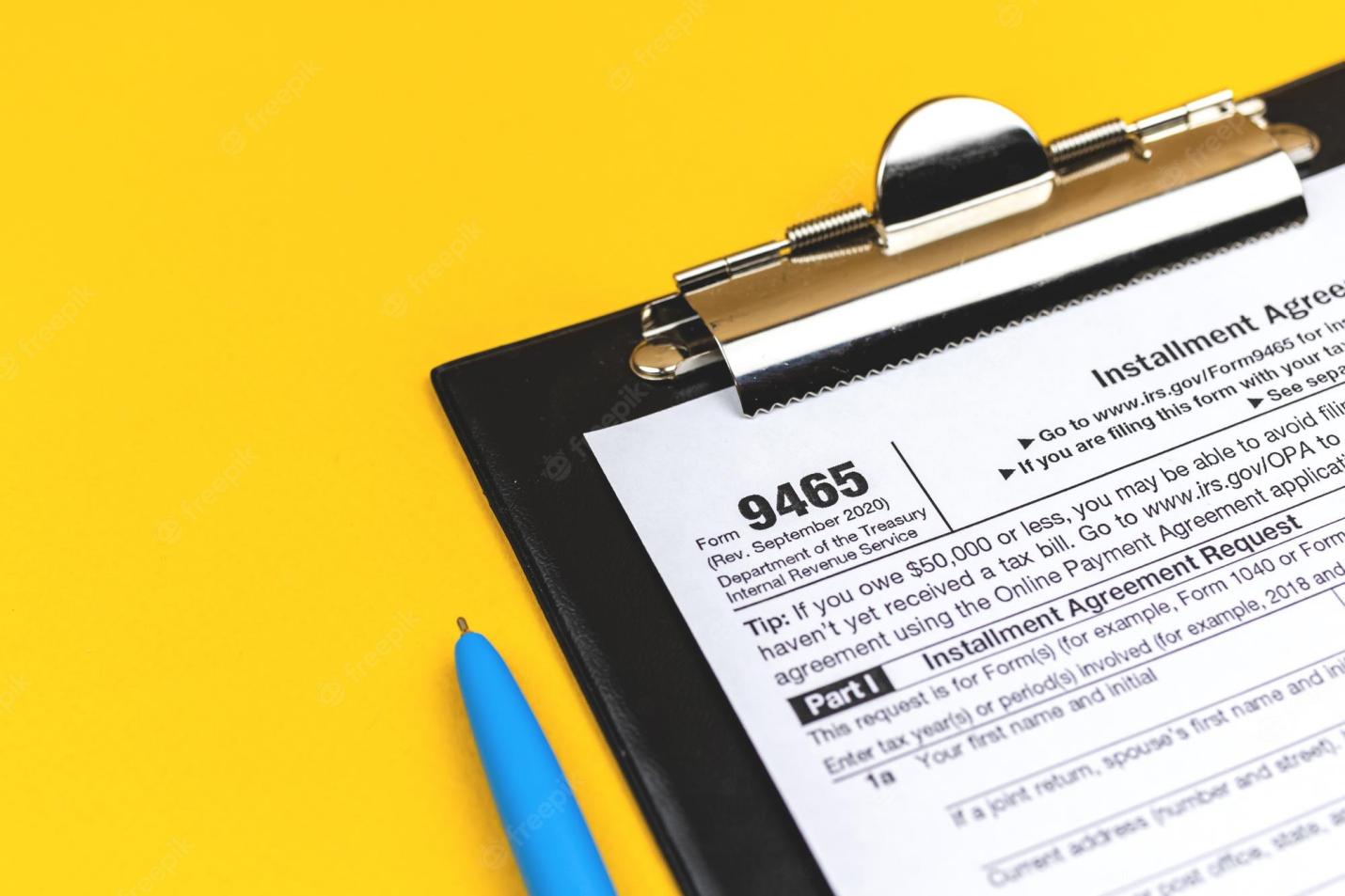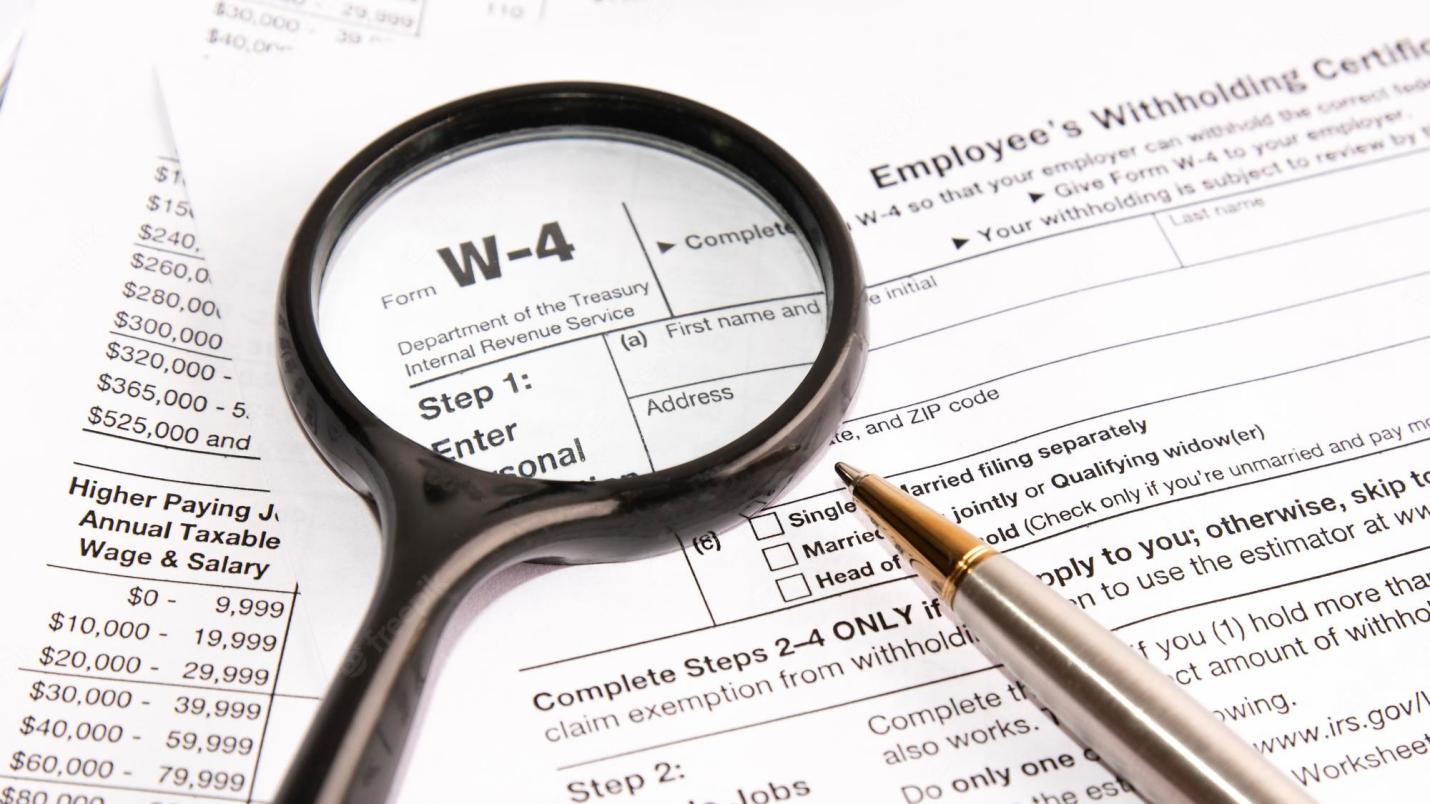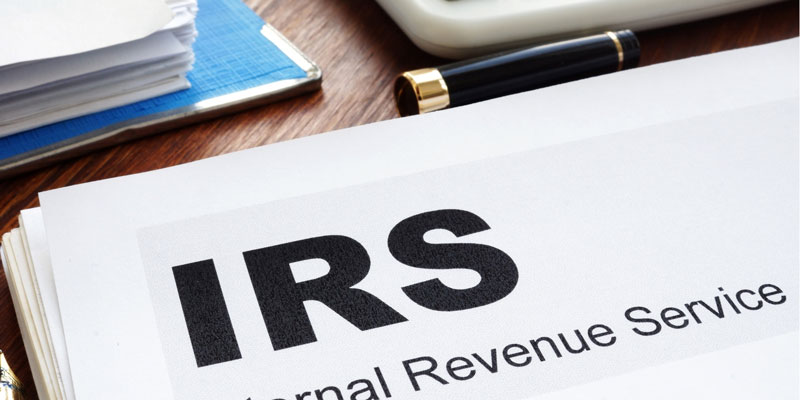When tax season rolls around, many taxpayers in the United States are hit with a large income tax bill that they cannot meet now. In addition, many people have tax debt that they have no clue how to pay off. Thankfully, the IRS provides a plan that lets you pay your taxes over time rather than all at once.
If this is your situation, you can set up an installment agreement with the IRS by submitting Form 9465, Installment Agreement Request. Keep in mind that until you pay the taxes owing, penalties and interest will continue to accumulate on the outstanding sum.
Who Can File Form 9465: Installment Agreement?

Under some circumstances, taxpayers who cannot pay their tax liability in full may use Form 9465 to arrange a monthly payment plan. If a taxpayer has a tax debt of less than $10,000, their application for a payment plan will be granted automatically under the following conditions:
- To qualify, the taxpayer must have submitted all prior tax returns.
- The taxpayer has not established a payment plan during the last five years.
- The taxpayer has financial difficulties and cannot make the required tax payments on time.
- Must pay off the amount within three years.
If your tax debt is more significant than $50,000, you must submit your return using paper IRS Form 9465 and original signatures. Add it to the top of your tax return as an attachment. If you want, you may submit just the form at any time.
Who Shouldn't File Form 9465? Installment Agreement
If you are currently paying payments to the IRS under an installment agreement and need to make arrangements for payment of additional amounts, you cannot utilize Form 9465 and must call the IRS at 1-800-829-1040. Calling the IRS instead of completing Form 9465 is also the best option for those filing for bankruptcy and wishing to make an offer in compromise.
When Filling Out Form 9465, Keep These Things in Mind

Initiating a Payment Schedule
Payments are due in full within 72 months or less. However, this time frame varies based on the size of your debt. Setting up an installment plan with the IRS costs money. We also have a one-time setup cost. If you want to pay what you owe by payroll deduction, you'll need to fill out IRS Form 2159: Payroll Deduction Agreement and pay an additional $225.
When filing taxes electronically using Direct Pay, low-income taxpayers can avoid paying the $31 setup charge since the IRS will cover that cost. If a taxpayer is low-income and doesn't pay by direct debit, the cost is decreased to $43, down from $149.
Complete Form 13844, Application for Reduced User Fee for Installment Agreements, to request a fee reduction from the IRS if you believe you qualify for an installment payment plan and the agency first denies your request. The charge to change or cancel the payment plan is $89. Additionally, fines and interest will be added to the outstanding sum until it is paid in full. 8
Late Tax Penalties
Interest assessed by the IRS is calculated quarterly and is equal to three percent on top of the short-term federal funds rate. A failure-to-pay penalty of 0.5% each month or a fraction thereof, up to a maximum of 25%, will be assessed by the IRS on top of the interest charged. Taxpayers who file on time and are approved for an installment plan will have their penalties reduced by 0.25% per month.
Taxpayers should be prepared to spend anything from 9 percent to 12 percent annually in penalties and interest on top of the original debt. Since this is the case, taxpayers must pay more than the minimum each month.
Sanctions Illustration
In April of 2021, Fred will submit his 2020 tax return, for which he will be responsible for a $700 debt. He files his return alongside Form 9465, setting up a 36-month payment plan. The Internal Revenue Service will levy interest to Fred at a rate of 6% per year on his tax debt if the federal funds rate is 3%.
If the late filing penalty is 5%, he will also have to pay an additional 6% yearly until the debt is paid in full. At 12% of $7,000, that comes to $840, albeit it will go down every month as the principle is paid back.
Bottom Line
Taxpayers who haven't yet paid their tax bills shouldn't worry. Even though applying for an installment agreement is simple and easy, late fees and interest will increase over time. Suppose a taxpayer cannot pay their federal tax bill in full and no payment arrangements have been made with the Internal Revenue Service.
In that case, they may be subject to a more aggressive collection effort, with higher penalties and interest rates than would have been applied had they paid their taxes in installments. To learn more, read IRS Publication 202, Tax Payment Options.



